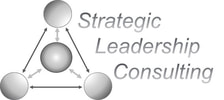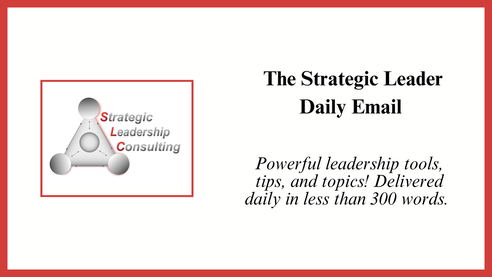|
Colleagues,
MVP: Increase the value of something by recognizing the value of that thing. Time and attention are fixed resources, so why do you invest a small measure of each in reading the daily email? Seriously, how does the daily email help you to live and lead better? The value in doing this small reflection is two-fold. First, by being more aware of the value you receive, you can be more intentional about leveraging the value. Second, you could help make my day by sharing your answer with me! We will be redoing our web pages soon and I would like to include some testimonials from people who regularly read and benefit from the daily email. Today’s intention: Answer this question for yourself and then share the answer with me if you have time: How does the daily email help you to live and lead better? Cheers! Frederick
0 Comments
Colleagues,
MVP: Use small wins to make tough days better. There are a couple of practices I have that I resort to when I am struggling. Some days the ideas don’t come, or I’m paralyzed with doubt, or feel so overwhelmed I have trouble focusing. For those days, I have some self-care strategies that I have identified as constituting wins. Essentially, if I’m having a challenging day, I count the day a win if I do two of these three things:
I know – it’s a pretty low bar, but that’s the point. They are good activities for me, and they make me feel better, so it is a double win. So, what is a good win activity for you? What one thing could you do on the hard days that would let you consider it a win? May I suggest – 5-minute coaching!?! It takes five minutes, is simple, and it helps someone else grow, which in turn should make you feel better. Win-win-win! Next time you are down, just go and do a five-minute coaching session and call the day a win. Yesterday’s podcast was about five-minute coaching, and it was so fun to put together because I got to do some real 5-minute coaching with two wonderful educators! The link is here in case you missed it or want to learn more about the technique. Today’s intention: The next time you hit a low spot, get out and do a 5-minute coaching session. Be mindful of the impact on the person you coach and on you. Cheers! Frederick Colleagues,
MVP: Done simply is better than designed delightfully. We need a new fence around part of our yard. We want to be able to let Collin’s new pup off leash without her running away. Additionally, three are deer moving into our neighborhood and I intend to plant a garden. My first thought about building a fence was about all the cool ways I could do it, but…
So, I need to keep myself grounded in simplicity. I need and MVP fence – a minimally viable product. If it keeps the dog in and the deer out, then my life is better. If there were no other projects needing my attention, I could invest everything into a fancy fence, but until that day comes (if it ever does) a simply done fence is way better than a fancy fence idea. Today’s intention: Monitor your own tendencies to make things complicated. Cheers! Frederick Colleagues,
MVP: Carefully weight the benefits of organizational change against the those of individual change because it is difficult to have both. Three times in my 13-year university teaching career I had to learn a new LMS (learning management system). This was always tedious and instead of focusing on becoming a better teacher, I was instead focused on trying to be the same teacher. I know that technologies change and we need to keep pace, but my point is that when I am busy focusing on one change, it makes it much more difficult to focus on another change. We all know this, and yet… Organizations of all types continue to “drive change” from the top down, thereby requiring the people doing the front-line work to put their own efforts to improve on hold to work on the organization’s efforts to improve. What if the big organizational change was to change the structure of the leadership team to help leaders focus more on growing and supporting their front-line people? Today’s intention: Think about an individual in your organization who needs help growing their skills. Think about the change initiatives that impact that person. Weight the value of the person devoting time and attention to the change against the tine and attention they could invest in their skills. Before you go! Top-down change is so common, I wonder if I am missing something. Am I wrong? Should change come from the top? And if I’m right, why is most change still coming from above? I would love to hear your thoughts on this! Click here to email me a reply! Cheers! Frederick |
Categories
All
Archives
July 2024
|


 RSS Feed
RSS Feed